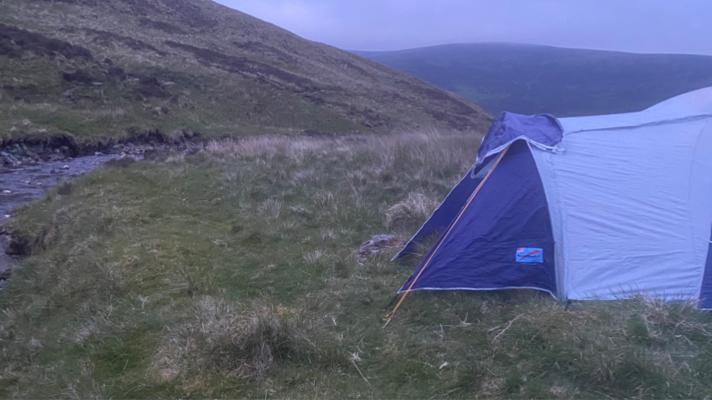On the Affliction of Camping
I am alone in the house. There is music on the Sonos (coffeehouse playlist, I’m basic like that). I’ve had two large coffees and only spilt a little bit of one of them over myself. I saw friends last night, I’ve read half a book, and watched both of today’s women’s world cup quarter-finals. The house is clean and tidy and has stayed that way for the last twenty-three hours. I’ve eaten two bowls of cereal and will likely have toast for dinner with a glass of wine for afters.
The reason for this state of UTTER BLISS is that, inexplicably, my husband is afflicted with a very sad condition. You may have heard of it. Your loved one — or even you yourself — may also suffer. It’s surprisingly widespread. It’s called “camping”, and there is no known cure.
Have you heard of it? It strikes unpredictably and indiscriminately. The most unexpected people will tell you about their “camping”. People often hide their experience, whispering cagily about a tent that’s been in their garage for some time, just lurking ready for the next time they are struck by sudden need to “touch grass” or “be at one with nature”. Some only have light cases: this mostly manifests in weekends “glamping” in wooden teepees or yurts which may or may not come with composting toilets, fire pits and fairy lights.
The more severe cases of “camping”, however, come in two strains. The first is the wild variety. In this situation, sufferers take pride in the minimalism of their coping strategies. They will own a small but expensive 2-person tent, which they will regularly pitch on the side of a mountain, edge of a remote beach, or near to a distant headwater. They do not utilise more than a wafer of sleeping mat. Trowels feature heavily. They will post evidence of their flare-ups in the form of instagram stories of a tent flap being zippered open to reveal a rolling tide, soaring mountains or, occasionally, a highland coo. This strain is often (though not always) co-morbid with “cycling”. This affects all ages and genders, though is particularly observed in cis men.
Photo property of author’s husband - used with permission
The other strain is the paraphernalia variant. In this, the afflicted gathers equipment that they believe will alleviate their symptoms. The acute substrain is much more common, where rapid and concentrated accumulation is observed. The first tent-based symptom quickly spawns awnings, storage, lighting, food prep and tableware, sleeping, screen, and suspension gear (which is a lot less kinky than it sounds). This rapid onset is often followed by an equally sudden remission of symptoms, and many patients do report an indefinite recovery, other than a lingering sense of guilt every time they look at the back corner of their garage.
The chronic paraphernalia variant, however, is what my husband experiences. This worsens over a period of many months and years, and the patient is much less likely to experience extended remission as in the acute variant. The chronic “camper” will find that much time, effort, and money is expended in research and development. More technically advanced equipment is often required, and many do find support groups both helpful and enabling. Scottish “campers” such as my husband do find that their tolerance for poor weather conditions increases with exposure, though there is the ever-present risk of the trench foot complication. He bears this with bravery and fortitude.
I will admit that I haven’t done a huge amount to support my husband in recovery from “camping”. This is due to the fact that my introvert’s need for alone time is matched only by my unqualified lack of desire to use communal toilet blocks. The fact that he often and generously takes our two children with him on “camping” trips is something I am happy to chalk up to their character-building, and I will happily contribute to any future therapy bills in exchange for these occasional weekends of books and coffee.
© Fiona McDerment, 2023. All rights reserved.
Article originally published via Medium - visit my profile here


